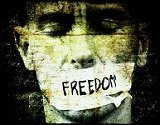In the spirit of the holiday season, three wise men, actually law professors, following an analysis, are warning that the proposed intellectual property PROTECT IP (Source: PROTECT IP) and the Stop Online Piracy Act (SOPA) (Source SOPA) legislation, currently working their way through Congress, will damage the world’s DNS system, cripple attempts to get better online security and violate free speech provisions in the US constitution (Source: Stanford Law Review).
DNS, for the layperson, is the essential technology networking system that points Internet browsers at websites when given a human-readable address, such as facebook.com or michaelpeters.org. If any site is removed from the DNS system then say goodbye to site traffic to that address.
The danger here is that the overarching reach of the proposed legislation would cause people to seek alternatives to the existing DNS system, manufacture massive technical problems in the ongoing implementation of DNS security (DNSSEC) and trounce on our rights of free expression by allowing the total suppression of published opinion based on allegations without proof, or even a hearing. Essentially, anyone with an opinion would be guilty before proven innocent. Your voice is in danger of being choked out!
From my point of view, there are two major facets here to be concerned about. First, under the current language of the proposed PROTECT IP legislation, a US federal prosecutor who finds a foreign website that is “dedicated to infringing activities” can force all US internet service providers and operators of domain name services to block, delete or in some way, disable the offending web content or the whole domain from the DNS systems. The effect would be to essentially wipe out the internet road map to the site as if it didn’t exist.
The professors warn that the SOPA legislation exacerbates the situation. “Under SOPA, IP rights holders can proceed vigilante-style against allegedly offending sites, without any court hearing or any judicial intervention or oversight whatsoever.” Furthermore they write, “All of this occurs based upon a notice delivered by the rights holder, which no neutral third party has even looked at, let alone adjudicated on the merits.”
The second facet to this conundrum as I see it concerns DNSSEC. The laws would break the current technical implementation of DNSSEC. Those companies using the secure protocol could find themselves liable for legal action and would encourage the formation of new, unregulated DNS systems that would fracture the overall structure of the internet.
A technical primer in the importance of DNSSEC; DNSSEC was designed to protect the Internet from certain attacks, such as DNS cache poisoning (Source: DNSSEC). It is a set of extensions to DNS, which provide origin authentication of DNS data, data integrity, and authenticated denial of existence.
One of the underlying problems is that the people dreaming up these proposed laws are technically challenged; essentially five year-old kids with guns! Legislators are plowing forward without any real technical expertise and are going to cause tremendous technical harm; not to mention push business away from the US who will want to circumvent this impending Orwellian debacle.
Another underlying issue is one of law. You would think that US legislators would have a better grip on the fundamental defects of these proposals. The challenge is that they are almost certainly unconstitutional since it can be used to deprive first amendment free speech rights without any access to a court hearing and with little or no evidence presented of a crime within the US. The effect on overseas website owners is even more extreme in that they may not even be informed prior to their site being taken down.
As you might imagine, there are some heavy-hitters fighting back fortunately. Some of the biggest names in the internet world have rallied to fight the current round of legislation, including some unlikely bedfellows. Google, Facebook, Mozilla and other online businesses are battling against it. Interestingly, the Business Software Alliance has opposed it too. You know that when the software industry’s anti-piracy goon squad doesn’t like intellectual property legislation, it must be seriously flawed.
Stay tuned to when the US Congress returns in January 2012 for a vote to see where this goes.
Article first published as Failure to Communicate: Pending US Congressional Orwellian Bills Threaten the Internet on Technorati.

